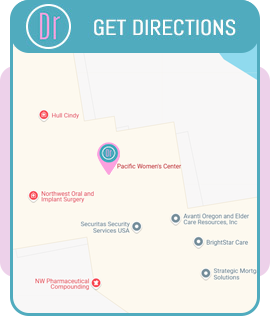Endometriosis Diagnosis and Care Q&A
Endometriosis is a painful condition where tissue similar to the lining of the uterus grows outside it, causing symptoms like severe pelvic pain, heavy periods, and fertility challenges. Early diagnosis and personalized treatment are key to managing this condition effectively. Dr. Richard Beyerlein MD, CPI, FACOG, and Tamara A. Stenshoel, MD, FACOG offer expert care in diagnosing and treating endometriosis, with options ranging from medication to advanced surgical interventions. For more information Contact us today or schedule an appointment online. We are conveniently located at 911 Country Club Rd # 222, Eugene, OR 97401.




Table of Contents:
What to do if you suspect you have endometriosis?
How is endometriosis diagnosed without surgery?
How serious is endometriosis?
Endometriosis is a disease where the tissue of the uterine lining, called endometrial tissue or the endometrium, grows outside of the uterus. This can cause a wide range of symptoms, including painful periods, infertility, and internal bleeding. Endometriosis affects an estimated 1 in 10 women of reproductive age, and some women may not know they have the disease until they experience symptoms. There are several different medical treatments and surgical procedures that can be used to treat endometriosis; the success rate of these treatments varies based on individual factors but is generally very high.
If you suspect you have endometriosis, it is imperative to receive a professional medical evaluation as soon as possible; endometriosis can cause severe pain and problems with fertility if not properly addressed. Common symptoms of endometriosis include:
• Painful Periods (Dysmenorrhea): While some abdominal discomfort is normally leading up to and during menstruation, severe pain is a sign that something is wrong. The pelvic pain and cramping caused by endometriosis often begin before menstruation and extend several days into a menstrual period; it may also cause lower back and abdominal pain.
• Pain with Intercourse: Sex should be pleasurable, not painful; pain during or after sex is common with endometriosis and should be addressed as soon as possible.
• Pain with Bowel Movements or Urination: Endometriosis can also cause pain when passing urine or stool; these symptoms are more likely to occur during a menstrual period.
• Excessive Bleeding: Excessive or profuse bleeding is another warning sign of endometriosis; it can cause occasional heavy menstrual periods or spotting (bleeding) between periods, also known as intermenstrual bleeding.
• Infertility: The most serious symptom of endometriosis is problems with fertility; since it causes tissues to grow outside of the uterus, it can lead to several reproductive issues. Endometriosis is often first diagnosed when a woman is seeking infertility treatment, only to find out that endometriosis is the culprit.
• Other Signs and Symptoms: Other signs of endometriosis include general symptoms akin to illness, such as fatigue, nausea, diarrhea, bloating, or constipation; these symptoms are much more likely to occur during a menstrual period.
Several procedures are used to diagnose endometriosis. While the most common surgical diagnostic procedure is laparoscopy, which involves a tiny incision to allow the doctor to see inside the abdominal cavity with a small camera, many other noninvasive methods can be used, including:
• Pelvic Exam: A pelvic exam is typically the first diagnostic method used as it is easy to perform and can be done in an office setting. These generally involve the doctor palpating (touching) the areas around the pelvis to check for abnormalities, such as cysts on the reproductive organs or scars behind the uterus.
• Ultrasound: Commonly associated with prenatal care, ultrasound has a wide number of uses as it allows healthcare professionals to see inside the body with high accuracy and zero incisions.
• Magnetic Resonance Imaging (MRI): In some cases, an MRI is used to diagnose endometriosis; this involves creating detailed images of the organs and tissues within the body using a magnetic field and radio waves.
Endometriosis is a common condition that affects millions of women in the United States; in some cases, women with endometriosis are asymptomatic, meaning they do not exhibit any symptoms. However, the condition can also present many health hazards, such as severe pain, menorrhagia (heavy menstrual bleeding), and infertility. If this condition is not properly addressed promptly, it can lead to these problems, affecting a woman’s ability to bear children.
Call us today to book an appointment with our endometriosis diagnosis and care specialist, or visit our clinic conveniently located at 911 Country Club Rd. Suite 222, Eugene, OR 97401. We look forward to serving you! We serve patients from Eugene OR, Springfield OR, Coburg OR, Creswell OR, Cottage Grove OR, Lowell OR, and Junction City OR.

ADDITIONAL SERVICES YOU MAY NEED
❱ Abdominal Hysterectomy
❱ Bladder Lift Surgeon Q&A
❱ Cervical Cone Biopsy
❱ Colposcopy
❱ Endometrial Ablation
❱ Endometrial Biopsy
❱ Female Sexual Dysfunction
❱ Gynecological Surgery
❱ Gynecology
❱ Hormone Therapy
❱ Vaginal Hysterectomy
❱ Endometriosis Diagnosis & Care



